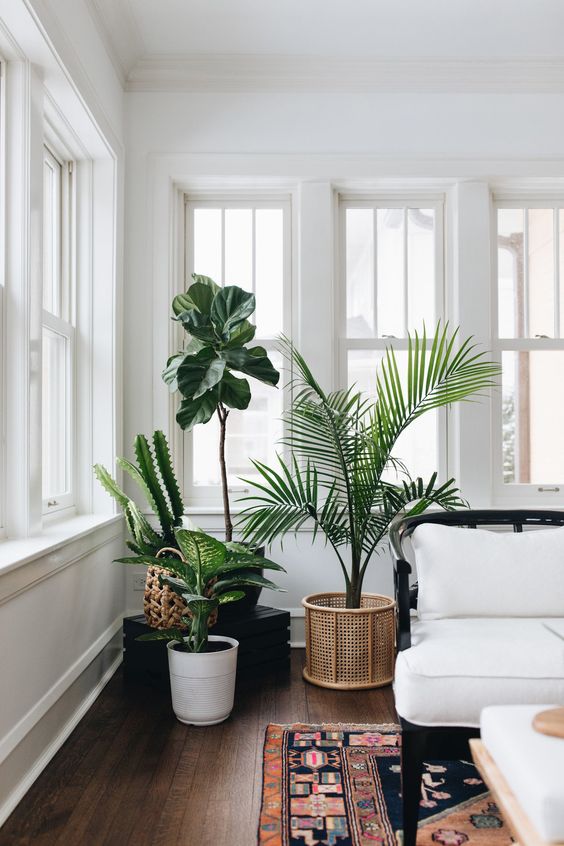Not only do indoor plants enhance the overall appearance of a space, but studies show they boost moods, increase creativity, reduce stress, and eliminate air pollutants and making for a healthier, happier you.
Owning indoor plants offers a multitude of benefits beyond just enhancing the aesthetics of your living space. Here are several compelling reasons why you should consider having indoor plants:
Air Quality Improvement:
Indoor plants act as natural air purifiers, absorbing pollutants and toxins while releasing oxygen. They can help improve the air quality in your home, making it healthier for you to breathe.
Stress Reduction:
Studies have shown that being around plants can reduce stress and anxiety. The presence of greenery and nature indoors can have a calming effect on your mind and promote relaxation.
Boosted Mood:
Indoor plants have been linked to improved mood and mental well-being. Their presence can help alleviate feelings of depression and sadness, contributing to a more positive outlook on life.
Increased Productivity:
Having plants in your workspace or study area can enhance focus, concentration, and overall productivity. The visual appeal of plants can create a more pleasant and conducive environment for work or study.
Humidity Regulation:
Many indoor plants release moisture through a process called transpiration. This can help regulate indoor humidity levels, which is particularly beneficial in dry environments or during the winter months when indoor air can become overly dry due to heating systems.
Natural Aesthetics:
Indoor plants add a touch of nature and beauty to your interior decor. They come in a wide variety of shapes, sizes, colors, and textures, allowing you to personalize your space according to your style preferences.
Connection with Nature:
If you live in an urban environment or lack access to outdoor green spaces, indoor plants can help bridge the gap and provide a sense of connection to nature.
Educational Opportunities:
Caring for indoor plants can be a valuable learning experience, especially for children. It teaches responsibility, patience, and an understanding of basic biology.
Improved Creativity:
Having plants around can stimulate creativity and innovation. Their presence can inspire fresh ideas and perspectives, making them especially beneficial for artists, writers, and other creative individuals.
Low Maintenance Options:
Many indoor plants are easy to care for, even for individuals with limited gardening experience. There are various types of plants that require minimal attention and can thrive in different indoor conditions.
Health Benefits:
Some indoor plants, like Aloe Vera and Lavender, have natural healing properties. Aloe Vera, for instance, can be used to soothe skin irritations and burns, while Lavender is known for its calming scent that can aid in relaxation and sleep
.
Social Interaction:
Sharing your indoor plant care experiences with others can foster social connections. Whether you’re discussing plant care tips or swapping cuttings, plants can serve as conversation starters.
Remember that different plants have varying care requirements, so it’s important to choose plants that match your level of commitment and the specific conditions of your indoor environment. Overall it’s good to have plants in our Living space

